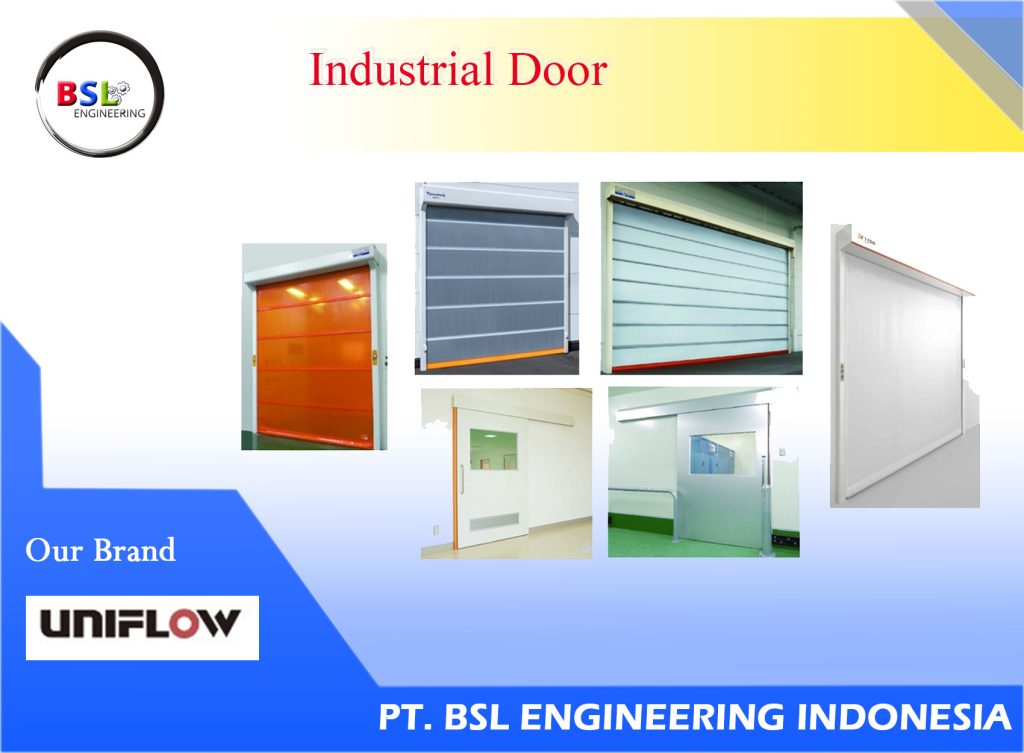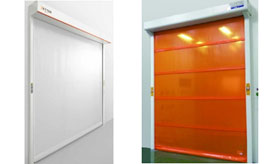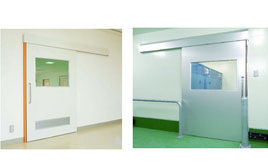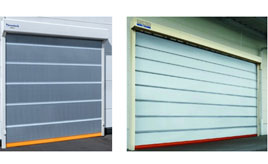The Comprehensive Guide to Industrial Doors: Functionality, Types, and Applications
Industrial doors play a crucial role in various sectors, serving as the gateway between controlled environments and the external world. From warehouses and factories to hangars and commercial facilities, industrial doors come in a wide range of types and designs, each tailored to meet specific requirements. This comprehensive guide explores the world of industrial doors, covering their functionality, types, and applications.

Understanding the Significance of Industrial Doors
Industrial doors are specialized entrances designed to withstand the demands of industrial settings. Unlike traditional doors, they are engineered to provide durability, security, and efficiency, making them an integral part of numerous industries. From controlling temperature and humidity to ensuring safety and security, industrial doors serve multifaceted purposes.
II. Functionality of Industrial Doors
- Security and Safety Features: Industrial doors are often equipped with advanced security features, including robust locking systems and access control mechanisms. These features ensure that only authorized personnel can enter specific areas, enhancing overall safety and security within industrial premises.
- Environmental Control: Many industrial processes require precise environmental conditions. Industrial doors are designed to control temperature, humidity, and airflow, creating optimal working conditions for manufacturing, storage, and other industrial activities.
- Durability and Resistance: Industrial doors are constructed with materials that can withstand harsh conditions, including extreme temperatures, high winds, and potential impacts. This durability is crucial in protecting assets and maintaining the integrity of industrial facilities.
III. Types of Industrial Doors

- Rolling Doors: Rolling doors, also known as roll-up doors, are a popular choice in industrial settings. They consist of slats or panels that roll up into a coil when opened. This design maximizes space utilization and provides a quick and efficient means of access.

- Sectional Doors: Sectional doors are made up of horizontal panels that are hinged together. They move vertically, folding into a compact space when opened. This type of door is commonly used in warehouses and loading docks.

- High-Speed Doors: High-speed doors are designed to open and close rapidly, minimizing the time the door is open. This feature is particularly beneficial in environments where temperature control, cleanliness, and energy efficiency are critical.
- Sliding Doors: Sliding industrial doors operate on a track, sliding horizontally to open and close. These doors are suitable for large openings and are often used in aircraft hangars, warehouses, and manufacturing facilities.
- Folding Doors: Folding doors, also known as accordion doors, consist of multiple panels that fold open like an accordion. They are versatile and can be customized to fit various sizes of openings.
IV. Applications of Industrial Doors
- Warehousing and Logistics: Industrial doors play a vital role in warehouses, facilitating the efficient movement of goods, ensuring security, and providing easy access for loading and unloading.
- Manufacturing Facilities: In manufacturing environments, industrial doors contribute to the control of airflow, temperature, and noise. They also enhance safety by restricting access to hazardous areas.
- Agricultural Settings: Farms and agricultural facilities use industrial doors for various purposes, including controlling access to storage areas, protecting livestock, and maintaining optimal conditions in barns and silos.
- Commercial and Retail Spaces: Industrial doors are utilized in commercial and retail settings for security purposes, as well as to create flexible and visually appealing storefronts.
V. FAQ Section:
Q1: What are the key considerations when choosing an industrial door for a specific application?
A1: When selecting an industrial door, factors such as the nature of the industry, required security levels, environmental conditions, and size of the opening should be taken into account. It’s essential to choose a door that aligns with the specific needs of the application.
Q2: Are industrial doors customizable for unique requirements?
A2: Yes, industrial doors are highly customizable. Manufacturers offer a range of options, including different materials, sizes, and configurations to meet the unique requirements of various industrial settings.
Q3: How do high-speed doors contribute to energy efficiency?
A3: High-speed doors minimize the time a door is open, reducing the exchange of indoor and outdoor air. This contributes to energy efficiency by helping to maintain consistent temperatures and reduce heating or cooling costs.
Q4: What maintenance is required for industrial doors?
A4: Maintenance requirements vary depending on the type of industrial door. Regular inspections, lubrication of moving parts, and prompt repairs are essential to ensure the longevity and optimal performance of industrial doors.
Q5: Can industrial doors be integrated with access control systems?
A5: Yes, many industrial doors are designed to be compatible with access control systems. This allows for enhanced security measures, restricting access to authorized personnel through key cards, biometrics, or other access control methods.
Conclusion:
Industrial doors are a critical component in the functionality and efficiency of various industries. Their diverse types and applications showcase the adaptability of these doors to meet the specific needs of different settings. Understanding the functionality, types, and applications of industrial doors is essential for making informed decisions when choosing the right door for a particular industrial environment.
OurBrand

PT.BSL ENGINEERING INDONESIA
Specialist in Material Handling, Engineering, Design and Procurement PT.BSL Engineering Indonesia
021-2927650 0812-9811-1780 (Telp./WA)
Ruko Sentra Niaga Kalimalang, Jl. Ahmad Yani, Kayuringin Jaya, Bekasi, Jawa Barat 17000
